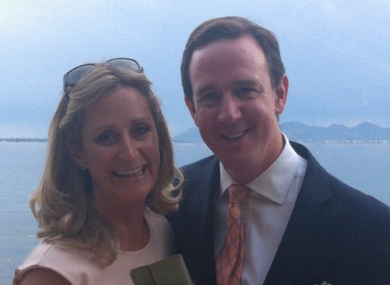WAS HELPING CHINA BUILD ITS POST-1978 LEGAL SYSTEM A MISTAKE? (forthcoming Virginia Journal of International Law Online, June 2020)
Abstract
Some thoughtful observers argue that the American policy of cooperation with post-Mao China in developing its legal system has proved a failure. They claim that our engagement set out to produce a democratic, rule of law China that would become, in the eyes of the United States and other democracies, a protector of human rights at home and a responsible member of the world community. Instead, they argue, engagement has enabled a Communist dictatorship to become increasingly repressive at home and a threat to world peace and the values we cherish. Implicit in this view is the belief that those of us who sought to assist in the early efforts of Deng Xiaoping’s “Open Policy” to improve the legal system of the People’s Republic of China (PRC) and its practice of both domestic and international law were not merely wasting our efforts but actually helping to create a nightmarish political Frankenstein. From this perspective, we failed in the effort to export liberal-democratic legal values to China.
At the same time, America’s post-1978 legal cooperation with China has come under attack on a somewhat different ground. The argument here is not that cooperation was a mistake in principle but that we carried it out in the wrong way – that, consciously or unconsciously, our legal efforts in China reflected not the earnest desire to learn from contemporary China in the true spirit of comparative law displayed by America’s Founding Fathers but a growing and misguided faith in the export of American law. Our post-’78 China efforts, it is said, should be seen as part of the post-World War II Law and Development movement that was predicated on the belief that the introduction of an American-type legal system in many developing countries would strengthen their governments and economies, lead them to political democracy, promote their positive participation in international relations and warrant the gratitude of their people. According to this view, the Law and Development movement was an erroneous, even dangerously arrogant, missionary-style attempt to export American law that ultimately proved futile. Indeed, post-’78 American efforts in China have been deemed Exhibit A in the indictment of the modern Law and Development movement. They have been branded the heir to earlier American efforts to “civilize” pre-Communist China by bringing it to Christianity and the rule of law, especially during the first half of the 20th century.
This article evaluates these claims and rejects both of them in qualified fashion. Given the international situation at the time and the chaotic, lawless and impoverished Cultural Revolution from which the PRC was seeking to emerge, post-’78 American legal cooperation with China was wise politically and economically. It helped to produce a coherent national legal system that improved the lives of the Chinese people and their country’s relations with the world.
To be sure, it did not lead to a democratic Western-type rule of law that protects political and civil liberties. Yet those of us who actively participated in this law reform effort were not naïve enough to believe that a rule of law regime might directly result from our efforts. We did, however, hope that respect for due process values and the role of an independent legal profession might develop as a byproduct. We were plainly not versed in the “Law and Economic Development” movement, although we assumed that, by responding to the PRC’s requests for legal assistance, we would promote domestic economic progress and foreign business cooperation, as indeed we did.
We were, of course, eager to learn what three decades of Communist experience had contributed to China’s legal system, only to find that our hosts, who were focused on absorbing international commercial law and practice from us, had little good to say about their own system’s accomplishments and no interest in and little knowledge of the pre-1949 Chinese legal systems that Chairman Mao had ostentatiously rejected. What we did learn about early PRC law from our post-‘78 involvement largely related to criminal law and confirmed the accuracy of those Western indictments of Chinese Communist injustice that had marked the previous long Maoist era, both during the period of Soviet influence in the 1950s and during the following two decades until the chairman’s death. Sadly, our generally successful response to PRC requests for legal cooperation has not even today diminished the abiding and prominent Chinese Communist preference to pursue regime goals via arbitrary detention rather than due process. True comparatists must acknowledge this fact.
Keywords: US-China relations, law and development, rule of law, democracy, human rights











